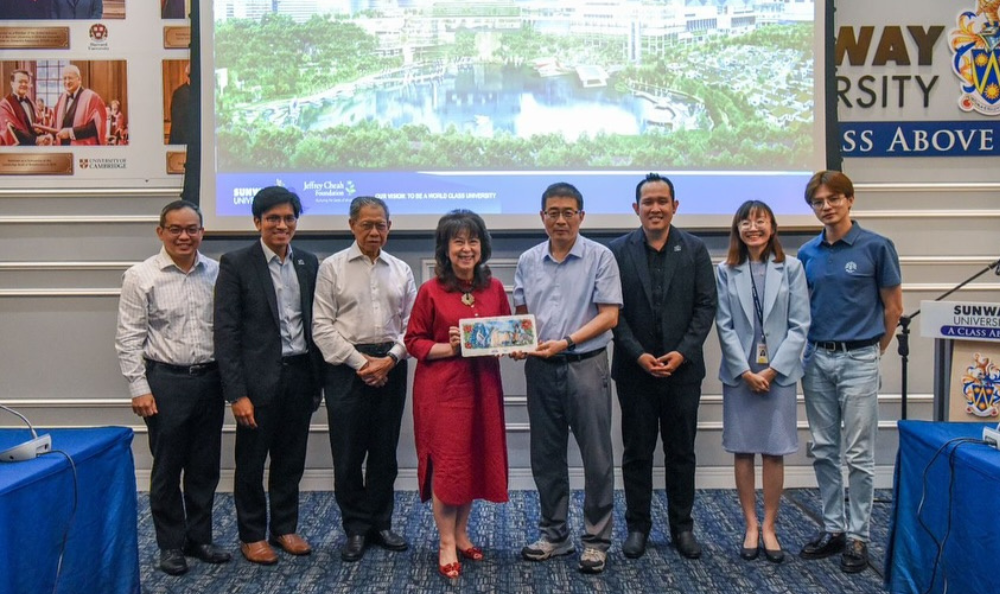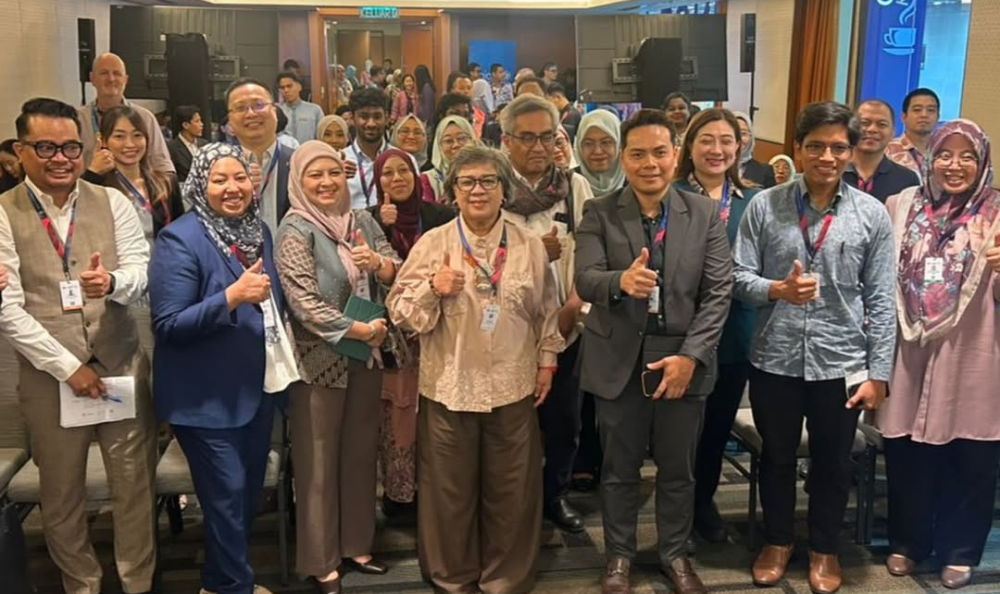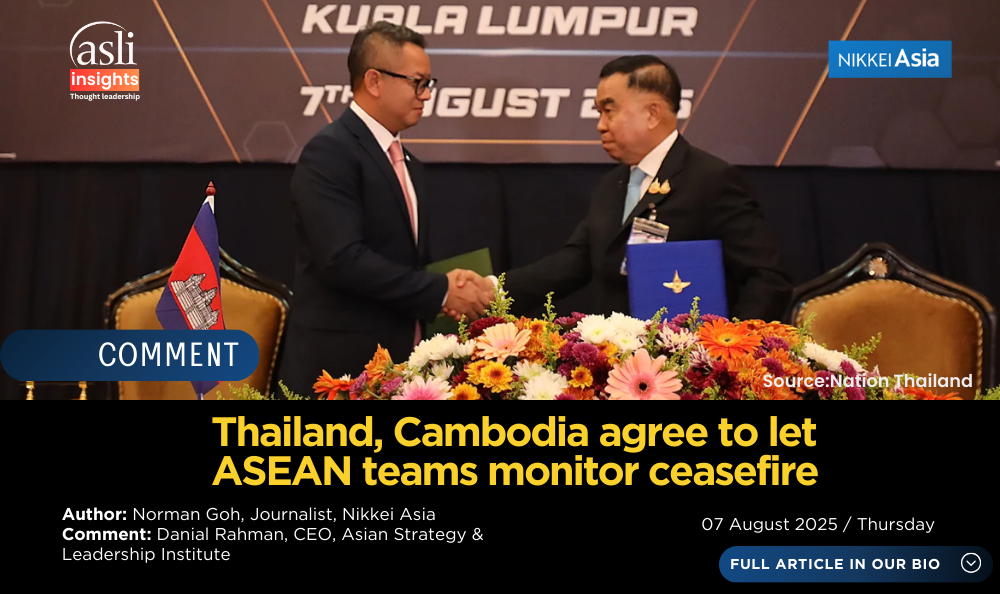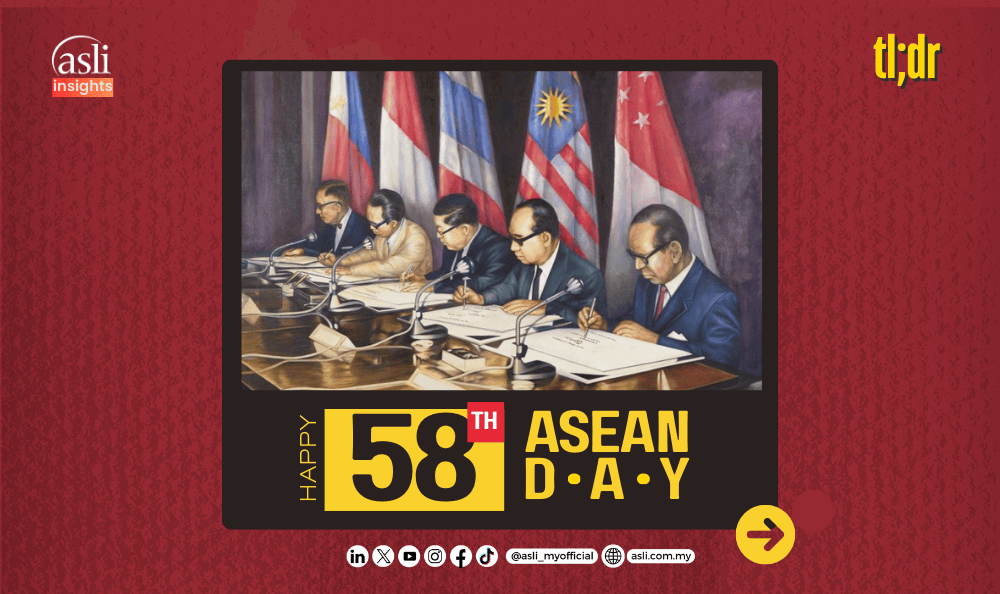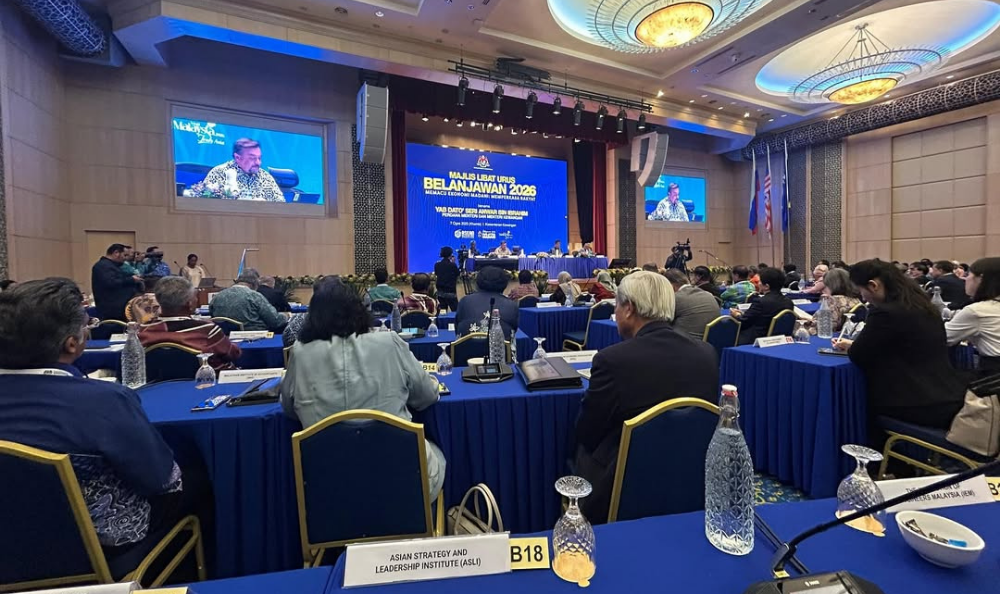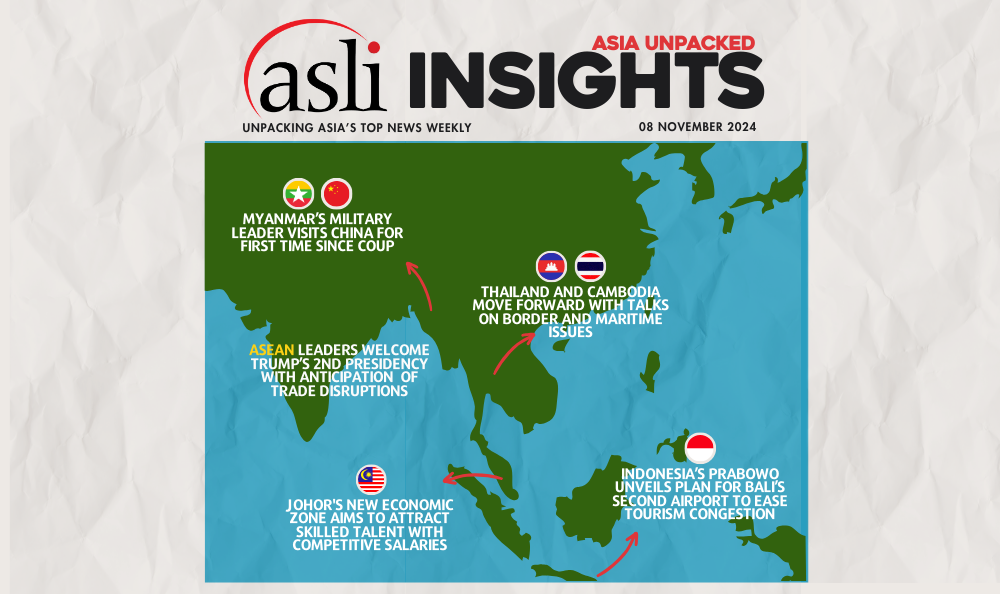
ASLI INSIGHTS: Asia Unpacked | 08 November 2024
ASLI is back with more ASLI INSIGHTS: Asia Unpacked!
Stay tuned for more top news in Asia handpicked by ASLI and for our curated weekly roundup!
This week’s Asia top news:
1) ASEAN Leaders Welcome Trump’s 2nd Presidency with Anticipation of Trade Disruptions
Following Donald Trump's victory in the 2024 U.S. presidential election, leaders across Southeast Asia offered their congratulations, including Philippine President Marcos, Malaysia's Anwar Ibrahim, Indonesia’s Prabowo Subianto, Singapore's Lawrence Wong, and Thailand's Paetongtarn Shinawatra. However, Trump’s proposed policies, particularly his blanket tariffs on foreign goods, have raised concerns in the region. These tariffs could impact Asia's leading exporters to the U.S., such as India and Japan, and hit countries with significant exposure to both the U.S. and China—like Vietnam, Malaysia, and South Korea—especially hard. With trade being crucial to Southeast Asia's economies, many nations are bracing for the potential economic fallout. Additionally, Trump’s more isolationist foreign policy, including his uncertain stance on Taiwan's security and regional alliances, further complicates the situation. ASEAN leaders are strategising to manage the risks of his protectionist measures while seeking stability in their relationships with the U.S.
Read more:
- https://www.aljazeera.com/news/2024/11/6/asia-braces-for-disruption-to-alliances-trade-after-trumps-victory
- https://asia.nikkei.com/Politics/U.S.-elections-2024/Asian-leaders-rush-to-congratulate-Trump-from-Marcos-to-Modi
2) Indonesia’s Prabowo Unveils Plan for Bali’s Second Airport to Ease Tourism Congestion
Indonesia’s newly inaugurated president, Prabowo Subianto, has revived plans for a second international airport in Bali, aiming to ease congestion at Ngurah Rai Airport and boost tourism in the underdeveloped northern region. Located in the Buleleng regency, the airport is envisioned to handle up to 20 million passengers annually and could transform Bali into a regional economic hub. Prabowo has pledged to make the island a “new Singapore” or “new Hong Kong,” aligning with his broader vision for Indonesia’s economic growth. Despite previous opposition, including from former president Megawati Soekarnoputri, the project has garnered political support, with an estimated investment of 17 trillion rupiah (US$1.07 billion). The airport is expected to alleviate congestion in the south, diversify tourism, and improve regional development.
Read more:
- https://www.channelnewsasia.com/asia/indonesia-prabowo-bali-new-singapore-hong-kong-congestion-tourists-4722496
- https://www.straitstimes.com/asia/se-asia/bali-set-to-have-second-airport-under-indonesias-new-president-prabowo
3) Johor’s New Economic Zone Aims to Attract Skilled Talent with Competitive Salaries
Johor is introducing premium starting salaries for skilled workers, especially in sectors related to the Johor-Singapore Special Economic Zone (JS-SEZ), as part of a strategy to address the region’s talent gap and compete with Singapore's higher wages. Deputy Prime Minister Zahid Hamidi announced that diploma holders in these sectors could start at RM4,000, while degree holders could earn RM5,000—significantly higher than the national average of RM2,700. The Johor Talent Development Council (JTDC) will play a key role in filling the 100,000 quality job opportunities expected under the JS-SEZ. The state aims to enhance local job prospects and curb the "brain drain" by offering competitive salaries and aligning educational programs with industry demands.
Read more:
- https://www.straitstimes.com/asia/se-asia/premium-pay-packets-for-workers-in-johor-linked-to-special-economic-zone-with-singapore
- https://www.thestar.com.my/news/nation/2024/11/03/up-to-rm5000-starting-salaries-for-js-sez-possible-says-zahid
4) Thailand and Cambodia Move Forward with Talks on Border and Maritime Issues
Thailand's Prime Minister Paetongtarn Shinawatra announced that the Thai Cabinet will likely appoint a Joint Technical Committee (JTC) within two weeks to resume negotiations with Cambodia over their overlapping maritime claims in the Gulf of Thailand. The two countries signed the MOU44 in 2001, which outlines their respective claims, but misunderstandings over the ownership of Ko Kut island, which both countries agree belongs to Thailand, have sparked confusion. Foreign Minister Maris Sangiampongsa emphasised that any agreement must be approved by both countries' parliaments and comply with international law. He reassured the public that the MOU44 does not jeopardise Thai sovereignty, particularly over Ko Kut, and that both countries' interests, including resource sharing, will be considered.
Read more:
- https://www.thestar.com.my/aseanplus/aseanplus-news/2024/11/05/thailand-plans-to-resume-talks-with-cambodia-over-border-disputes
- https://www.thestar.com.my/aseanplus/aseanplus-news/2024/11/07/thai-fm-maris-issues-clarification-on-maritime-boundary-talks-with-cambodia
5) Myanmar’s military leader visits china for first time since coup
Myanmar's junta leader, Min Aung Hlaing, is visiting China for the first time since the 2021 coup that ousted Aung San Suu Kyi's government. He is attending regional summits in Kunming, where he will discuss enhancing bilateral relations and economic cooperation with Chinese officials. While China has provided support to the junta, including backing for planned elections, its involvement is driven by strategic interests, such as Myanmar's role in China's Belt and Road Initiative. Despite this, the relationship is strained, with Myanmar's military facing setbacks from rebel forces and internal mistrust towards China. The visit could further complicate the junta's legitimacy.
Read more:
- https://www.channelnewsasia.com/asia/head-myanmars-military-government-visit-close-ally-china-4722951
- https://asia.nikkei.com/Spotlight/Myanmar-Crisis/Myanmar-junta-chief-to-visit-China-for-first-time-since-coup
Empowering Leaders, Advancing Societies.
